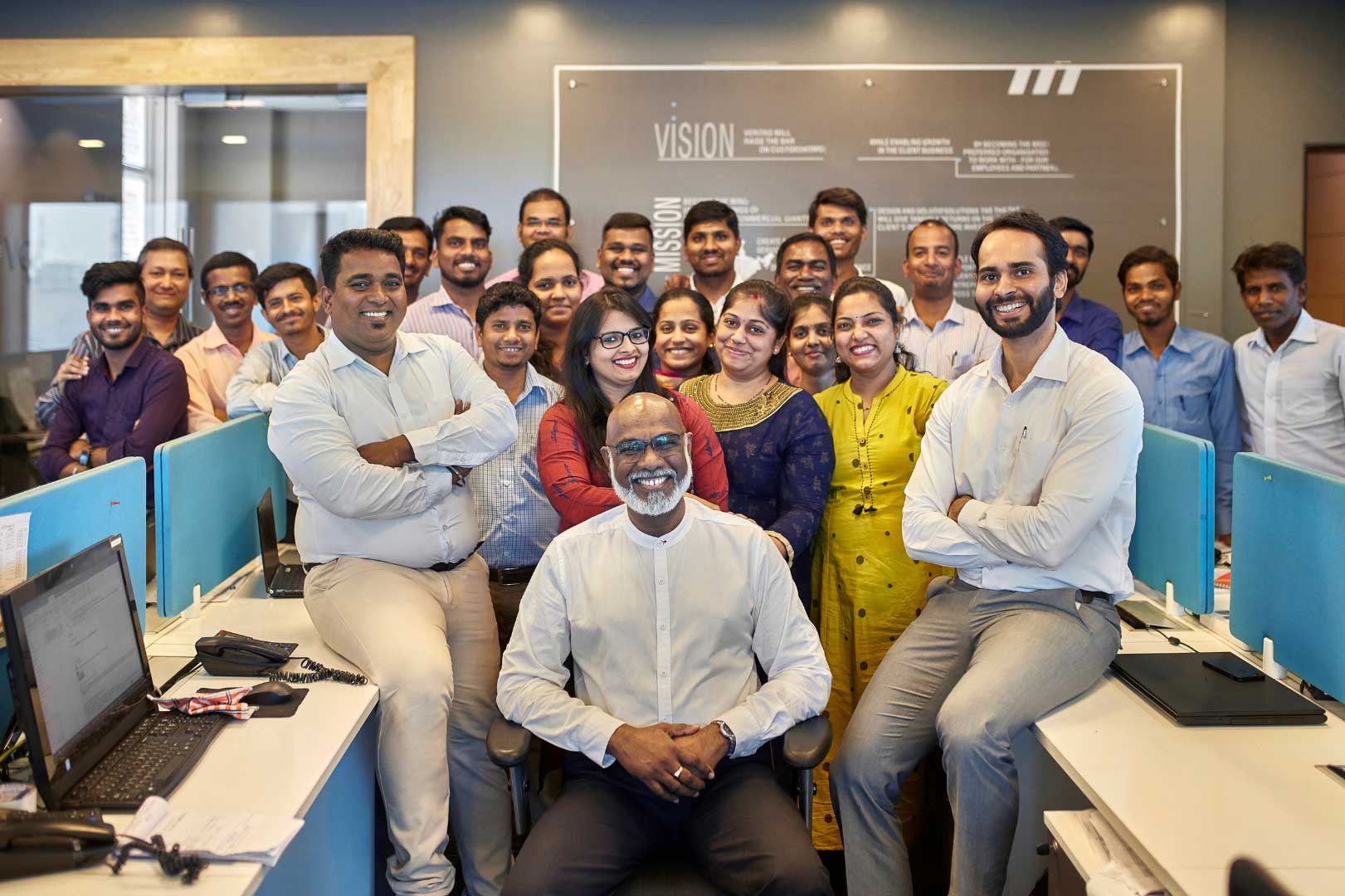Use trusted agency that accelerate results
India is one of the fastest growing economies in the world today. Strategic planning, due diligence, consistent follow-up, patience, and commitment are prerequisites for doing business successfully in India. The Indian market necessitates multiple marketing efforts that address differing regional opportunities, languages, cultures, consumer behaviors, standards, and levels of economic development. Penetrating the Indian market requires careful analysis of consumer preferences, existing sales channels, and changes in distribution and marketing practices. India is a face-to-face society, and in-person meetings are typically necessary before formalizing business partnerships or agreements. While the pandemic has led Indian companies to work more frequently with global partners in virtual environments, it remains to be seen whether this is a permanent shift in business practices.
We help companies with their India Entry Strategy starting with market exploration followed by business planning and finally implementation of strategy for a strong profitable presence in India.
Market exploration phase
- Current & Future opportunity
- Market research and Competition analysis
- Entry Barriers
- Trends in Technology
- Demand & Supply analysis
- Potential customers / Business leads / Partners
- Sales & Distribution channels
- Location advantage
- Business culture
Business planning & Strategy formulation phase
- Company’s short term and long-term goals
- Strategic priorities
- Investment and risk appetite
- Industry growth forecast
- Best practices and success and failure of competitors
- Distribution, pricing, product and positioning
- Business plan to track important assumptions and proposed decisions
Implementation phase
- Incorporate Indian entity
- Opening bank account
- Undertake Mergers &Acquisitions /Joint Venture activities – target identification, deal structuring, post deal integration
- Identifying the right commercial partner and signing of commercial contracts – with importer, distributors, agents, etc.
Depending upon the needs of the business, a foreign company can choose between various options stated below under the FDI guidelines. Options for setting up business in India:
Liaison Office
Offices opened by foreign corporations in India
- To act as communication channel between them & Indian customers
- To spread awareness about their products
- To explore new opportunities
Setting up requirements : Prior Approval of RBI
Permitted Activities : Only liaison /representative /Communication role permitted.
Funding of local operations :Local expenses to be met out of inward remittances received from Head Office f abroad through normal banking channels
Limitation of Liability : Unlimited Liability
Compliance requirements under Companies Act : Registration and periodical filling of accounts/other documents required
Compliance requirements :Required to file an annual compliance certificate with RBI


Branch Office
Foreign companies may open branch offices in India to undertake business activities as permitted by the RBI like:
- To act as communication channel between them & Indian customers
- To spread awareness about their products
- To explore new opportunities
Local Indian Subsidiary Company
Foreign corporations set up wholly owned subsidiaries in India, subject to FDI guidelines
- Funding can be via debt, equity & internal accruals
- No approval required for repatriation of dividend
Setting up requirements :If activities fall under the ambit of the automatic route, no prior approval, otherwise approval required
Permitted Activities :Any activity specified in the memorandum of association subject to FDI guidelines
Funding of local operations :Through equity or other Contribution in the capital of infusion or borrowings
Limitation of Liability :Liability limited to the extent of equity participation in the Indian company.
Compliance requirements under Companies Act :Compliance needed with significantly higher statutory compliance & filing requirements
Compliance requirements :Required to file periodic and annual fillings related to receipt of issue of shares to foreign investors


Limited Liability Partnership
Form of business where the liability of the partners is limited to their agreed contribution to the LLP
- Capital contribution by partner only in cash
- Permitted only in sectors where 100% FDI is allowed without any conditions
Setting up requirements :Allowed in sectors which are under 100% automatic route.
Permitted Activities :LLP should be engaged in the activities or sectors for which 100% FDI is allowed without any approvals
Funding of local operations :Contribution in the capital of the LLP should be through inward remittance; LLP not I eligible to raise overseas borrowings
Limitation of Liability :Liability of the partners is limited to their agreed contribution except in case of fraud, wrongful act, etc
Compliance requirements under Companies Act :Required to file periodic and annual fillings related to receipt of issue of shares to foreign investors
Compliance requirements :Required to file an annual activity/compliance certificate (from auditors in India) with RB
Repartition of Funds
REPATRIATION OF CAPITAL
Foreign capital invested in India is allowed to be repatriated along with any capital appreciation, provided.
Taxes due have been paid
Investment was made on a repatriable basis
Companies opting to buy out shares are subject to a distribution tax of 23.07%*in respect of net consideration paid on buying back shares.
REPATRIATION OF FUNDS IN AN LLP
Partners of an LLP can freely draw capital
Interest on capital can be paid subject to DTAA
Remittance of royalties and technical know-how, technical / management services fees, consultancy fees and pre incorporation expenses is permitted, subject to prescribed limits/conditions under automatic route.
REPATRIATION OF DIVIDEND/INTEREST
Profits & dividends earned from an Indian company are repatriable after payment of dividend distribution tax.
Interest paid by an Indian company is allowed as deduction subject to Indian Foreign Exchange regulations and Transfer pricing guidelines.
OTHER REMITTANCES
No prior approval is required to remit surplus funds to the head offices earned by Indian branches of companies (other than banks) incorporated outside India.
Sundry remittances are allowed for certain items, including gifts, repair charges for imported machinery, maintenance & legal expenses, subject to prescribed limits.
In bound-Out bound consultancy
Cross border transactions represent an enhanced value to the promoters and other stakeholders. By rationalizing the operations, administrations, investments etc. such transactions help in enhancing the gains in real terms. However, cross-border transactions can generate additional taxes that may erode the benefits derived through operational efficiencies if proper planning is not employed.
At BlueEdge, we focus primarily on understanding the client’s business objectives. Our experts come up with practical and innovative solutions considering tax as well as non-tax factors for a wide range of transactions.
Our Service Includes structuring
- Tax efficient holding structure
- Efficient profit extractions
- Transactions-Investments, setting up business etc.
Outsourcing Consultancy
Knowledge process outsourcing is a form of outsourcing, in which knowledge-related & information – related work is carried out by employees in a different location, which may be in the same country or in an offshore location to save cost. Unlike the outsourcing of manufacturing, this typically involves high-value work carried out by highly skilled staff.
There are many different ways in which one can out-source their finance & accounting functions
Outsourcing Consultancy
The process of providing the Finance and Accounting Functional Outsourcing Services by placing staff “on-site” at the client location.
Off-site Outsourcing
The process of providing the Finance & Accounting Functional Outsourcing Services from a remote location. This service type will usually result in the most cost-effective solution for companies that select a mature outsourcing vendor as it allows a company to leverage an Out-sources investment in infrastructure, systems, personnel, and processes.
Area of services
- Bookkeeping/Accounting
- Management Accounting
- Final Account production with reporting & review
- Receivable management
- Payable management
- Management Information System (MIS)
- GST Reconciliation and return preparation
- Payroll Management
- Preparation of Tax returns for individuals, trusts, partnerships or corporate
- Consolidation of financial statements for operations in more than one country
Amid this state of disruption and global economic volatility, India is pushing ahead with its intention to expand the contribution of its manufacturing sector to the GDP. The goal for the Modi government is to narrow existing gaps in local supply chains and bolster production capacity in critical areas of the new economy. In turn, this will also enhance India’s export-oriented manufacturing potential, establish the country’s higher value in the global supply chain, and lower sector-wise import dependencies.
So far 13 sectors have been identified for Production-Linked Incentives (PLI) schemes and its beneficiaries need to meet certain targets, such as initial and planned investments, innovation, and sales, over a specified period. These 13 sectors should be attractive for foreign investment as they will require infrastructure upgrades, advanced production knowhow, R&D, logistics support, among others. They will also benefit from a liberal investment environment. More likely as well is that industries in these sectors will become more organized, benefit from regulatory reforms, and strengthen corporate governance standards.
